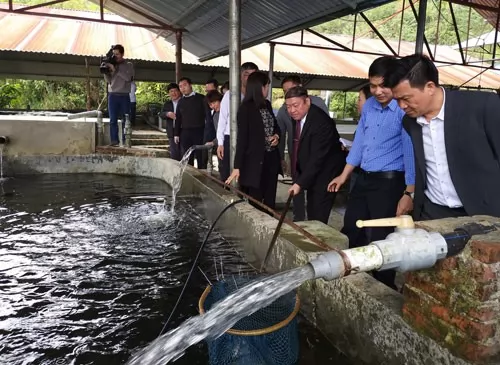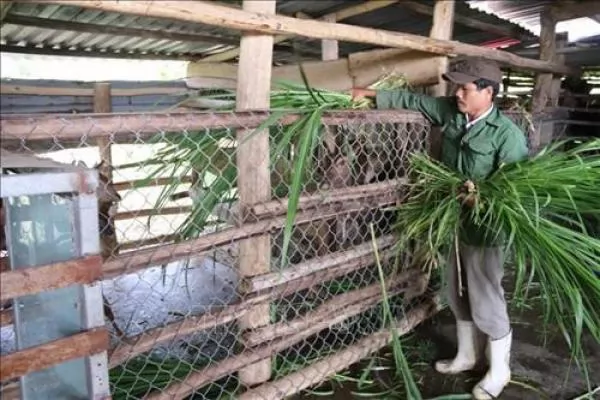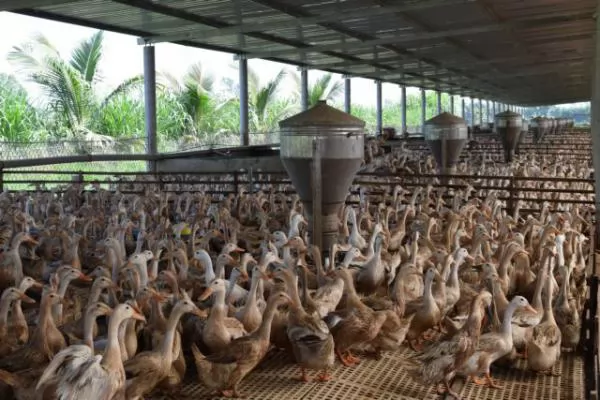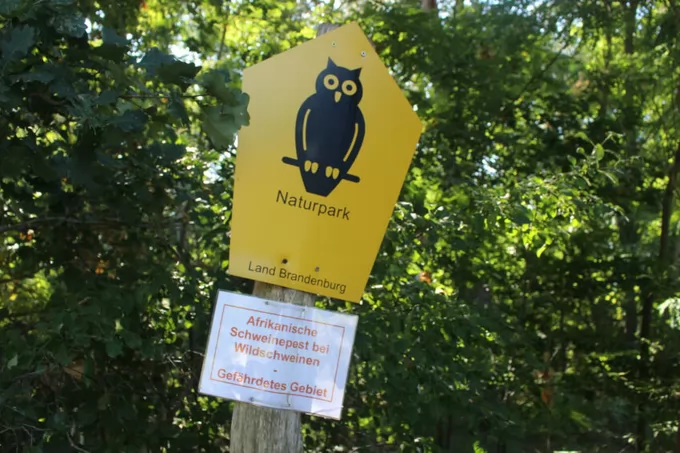Lào Cai to set up agricultural speciality areas

Thào Xuân Sùng, chairman of the Việt Nam Central Farmers’ Association (third right) and other experts visit a fish raising farm in Bát Xát District. — Photo danviet.vn
--Viet Nam News
LÀO CAI — Lào Cai Province should work with enterprises to establish large agricultural speciality zones and upgrade its infrastructure to enhance product value, according to a farming expert.
Thào Xuân Sùng, chairman of the Việt Nam Central Farmers’ Association, made the statement during a recent trip to the northwest.
The northern mountainous province has different kinds of agricultural products including fish, cinnamon trees, bananas, pineapples and tea.
Lưu Văn Quang, a farmer in Dền Sáng Commune, Bát Xát District, said that thanks to the clean water from the mountain, local farmers set up fish raising ponds and produced high quality products.
On average, Quang’s family sells 50 tonnes of fish per year and makes profits of dozens of billions of đồng (VNĐ10 billion equals US$434,700).
Quang’s farm is Vietnamese Good Agricultural Practices (VietGAP) certified.
“In the future, we hope that the State will help us get capital with preferential interest so local farmers can expand their working model and help each other,” said Quang.
Đặng Xuân Trung, chairman of Lào Cai People’s Committee, said that in past years, the province took advantage of soil and weather and focused on developing its famous agricultural products.
On the average, province earns VNĐ69 million ($3,000) per hectare of soil. Total food capacity of the province last year reached more than 319,900 tonnes.
The province has more than 5,200 agricultural and forestry processing enterprises.
Speaking about the province’s difficulties, Nguyễn Thanh Dương, deputy chairman of the provincial people’s committee, admitted that most local farmers still sell raw products. Several enterprises invested in processing the products, but the number was still limited.
The province’s tea must be transported to the south for processing before being exported abroad.
“This year we will create more favourable condition for enterprises to invest in processing the province’s products to create more work for local farmers,” said Dương.
Production area
To develop the province’s production, Sùng said that the province should have different production areas with each area focusing on one product.
The province should first upgrade its infrastructure including roads and irrigational system, he said.
The province should have more preferential policies and encourage big enterprises to build processing plants.
Lào Cai borders with China with various means of transport such as waterway, railway and highway and the province should take advantage of this great export opportunity, he said.
He also suggested Lào Cai and other northwestern provinces should set up co-operatives and career unions to improve ties with enterprises. — VNS
Maybe you are interested

Deer farming lucrative in south
Viet Nam News / HCM CITY - Breeding deer to harvest their antler velvet, the soft skin that grows on top, is enabling farmers in Bà Rịa - Vũng Tàu Province's Xuyên Mộc District earn a steady income.

Duck farmers urged to meet biosafety standards
Authorities in the Cửu Long (Mekong) Delta have encouraged farmers to breed ducks under biosafety standards and develop guaranteed outlets to ensure stable incomes.

ASF Germany: 9th farm confirmed infected
German authorities have reported a 9th pig farm to be infected with African Swine Fever. The virus was confirmed in a finishing farm in the state Mecklenburg-Vorpommern, in the country's north east.





